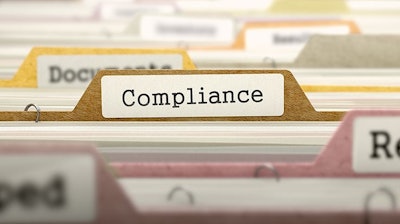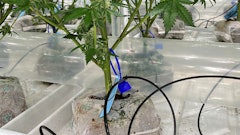
Don’t miss Todd Hill speak during the “Ensuring Downstream Compliance” session at noon on Monday, March 12, at the Cannabis 2018 Cultivation Conference! Hill will offer detailed insights into compliance, helping you ensure that the proper processes and agreements are in place to protect you and your business throughout your supply chain. For more information, visit www.cannabiscultivationconference.com.
Compliance has many facets, from on-site regulation compliance to ensuring proper processes and agreements are in place to protect the business throughout the supply chain. Here, Todd Hill--entrepreneur, CEO, founder and board director for California’s BUDDHII Cooperative, a medical marijuana collective--shares five tips for successful downstream compliance, including navigating the permitting process, choosing a distributor and implementing a tracking system.
1. Local Regulations Determine Your Approach to Compliance
“From our perspective, you have to be successful at the local level to get to the state level, and how the local level sets up their policies will be infinitely attached to how you are compliant,” Hill says.
For example, if a municipality mandates that only one distributor can operate, the competitive advantage of selecting a distributor is removed. However, compliance and cost challenges can also arise when companies must use a city’s designated distributor, Hill says, as there is no room for choice.
Moratoriums are another municipal scenario that often occur. Local bans on cannabis businesses may make it difficult to find nearby vendors to handle each link in the supply chain.
“If you’re a cultivator, you need a reliable distribution channel,” Hill says. “If you’re a dispensary, of course you need to receive your product from a compliant distributor. All these things fundamentally affect the approach you have to compliance.”
2. Demonstrate Your Understanding of Compliance
Performing due diligence to ensure your company is compliant with local and state regulations isn’t always enough to secure a license, Hill says, so it is imperative that businesses find ways to successfully demonstrate their complete understanding of compliance to the licensing organizations. Doing so in a superior way can give business hopefuls a competitive advantage, Hill adds.
3. Demonstrate That You Are Actually Compliant
Once your business has demonstrated that it understands how to be compliant and has won a license, it is time to demonstrate that you actually are compliant, Hill says.
“[You should come] up with your own set of metrics to understand where you may be out of compliance or [where] you may look like you’re out of compliance and [where] you need to generate … additional procedures to help demonstrate that you actually are compliant,” he says.
For example, flower loses moisture content as it ages.
“A cured product is roughly between 7 and 15 percent moisture, depending upon the strain and the feel of the product and some arbitrary or nonarbitrary factors, but we all know that moisture content leaves the product,” Hill says.
If a product sits for an extended period, it may lose more moisture content than what is permitted, he says, and even though it was within the legal limit when it was manufactured, it may appear that your product was out of compliance all along.
“Same thing for folks that are buying in bulk for making concentrates,” Hill adds. “You don’t necessarily want water in your concentrate. That might behoove you to either demand lower moisture product up front, or you may cure your product a second time.”
Businesses need to tell a compliance story that convinces regulators that they are indeed compliant, despite factors that may create a gray area, Hill adds.
4. Thoroughly Vet Your Distributor
Dispensary owners should thoroughly vet their distributors to ensure they are compliant, especially when it comes to product testing, Hill says.
“You might want to see in advance what testing lab they’re using and what their relationship is with those testing labs,” he says. “You might actually want to see their agreement letters related to what they have for laboratory testing.”
Distributors may be reluctant to share this information, Hill adds, but it is important that dispensaries perform due diligence to ensure compliance.
“You’ve got to know that they’ve got a relationship with the lab because it’s incumbent upon you to demonstrate in the future that your product is tested, and for you to simply throw your hands up in the air and say, ‘Well, I trusted the licensed distributor,’ may or may not be sufficient to cleanse you of liability,” he says.
5. Thoroughly Research Your Tracking System
Depending on state regulations, cannabis businesses may be able to select their tracking system, and in states that do not require a specific system, Hill says that businesses should thoroughly research the available options before choosing one.
“When the state has its tracking system fully up to speed, do you still want to use … a third party, or do you simply want to use the state-mandated approach?” Hill says. “And is there a benefit to using the other folks?”
The system you choose will affect many aspects of your business, including record keeping, Hill says, so it is imperative to make an informed decision and remain compliant within whichever one you select.
Top photo courtesy of Adobe Stock
























